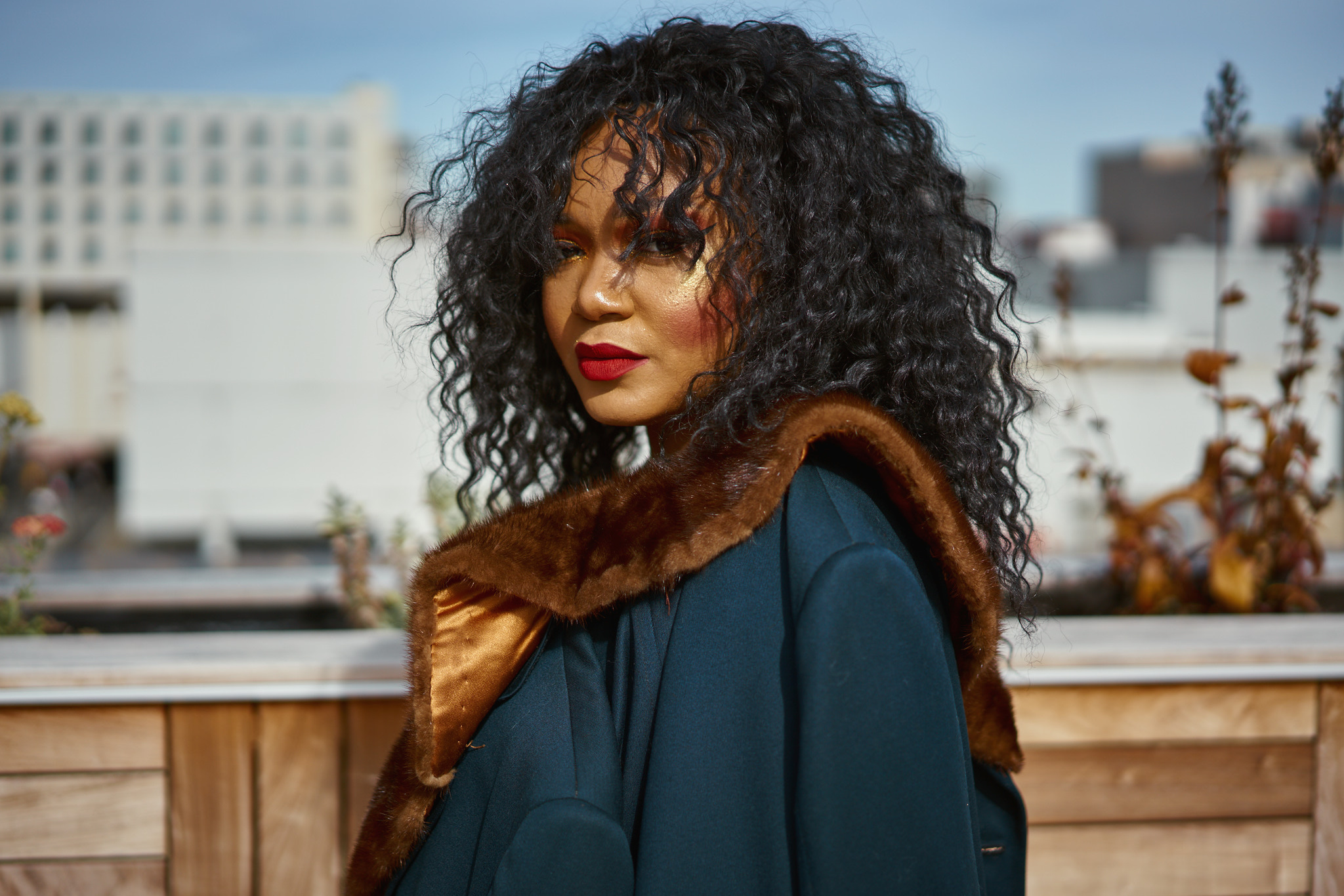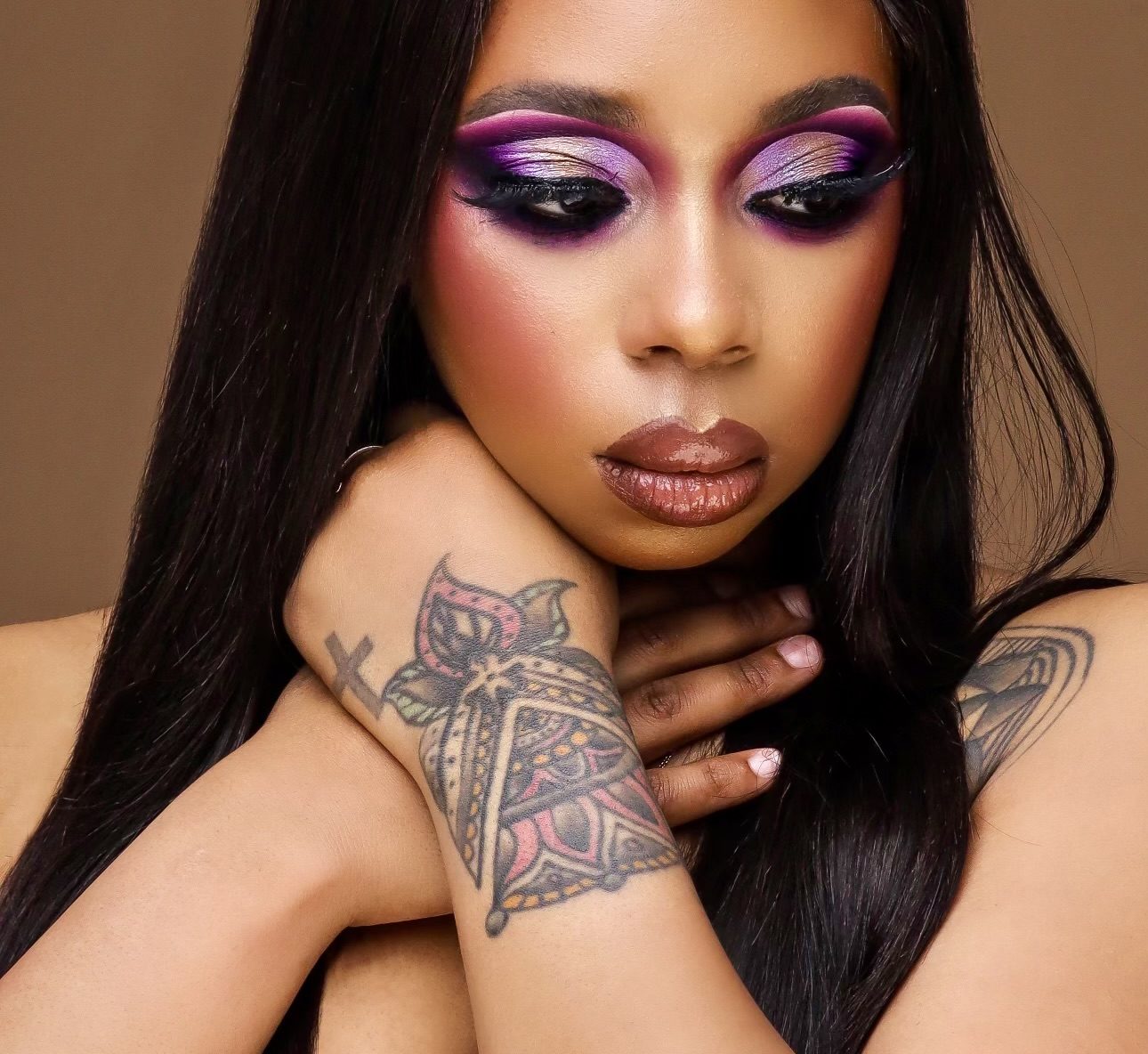From business mogul Rihanna to New Orleans cosmetics founder Reynell Steward, the success of Black women founders in the cosmetics industry has been inspirational for other entrepreneurs of color, though the pandemic has cast doubt in their industry.
Staying at home to curb the spread of COVID-19, and mask wearing while out in public, has flattened the purchase and usage of cosmetics products. The industry saw a 55% and 75% decline in cosmetics and fragrance purchasing, respectively, from 2019 to 2020. Online sales largely replaced retail sales during the pandemic and experts expect that trend to remain after the pandemic is over.
Two local Black woman founders recently spoke with Technical.ly about their experiences in developing consumer goods, the impact the racial justice movement has had on their industry and the magic of building inclusive brands.
Creating options
Temple University alumna and Philly transplant Camille Bell’s cosmetics brand Pound Cake was designed to represent all shades of beauty with products designed for various skin and lip tones. Bell first conceptualized the brand in 2016, and by 2019, she and Pound Cake cofounder and chief branding offer Johnny Velazquez were on track to officially launch with proven and tested cosmetics products.
But the pandemic changed their plans.
The lab the company was working with was closed mid-April to early-May of 2020, and production timing took a hit.
“The lab we were working with was just focused on making money and a lot of their employees quit because they were able to make more money on unemployment than at the lab,” Bell said. “They were short-staffed on top of the supply chain [issues]. We went from getting revisions once a week to once a month.”

By September 2020, the lab dropped the company because the it had found a bigger client, Bell said. It forced the cosmetics company to start over again in creating its products.
Bell said that the May 2020 murder of George Floyd by Minneapolis police, and the subsequent racial justice movement sweeping the country, compelled large cosmetics companies to start initiatives supporting Black and brown business owners. Internationally known beauty brand Glossier was among them.
The same month Pound Cake was dropped from their lab, Glossier announced the Philly company was one of 18 companies to receive a $10,000 grant as part of its Grant Initiative for Black-Owned Beauty Businesses. With help from a larger platform than ever before, a New Jersey laboratory saw, and reached out to Bell to help her develop her cosmetics formulas.
Losing a relationship with a laboratory taught Bell a lesson in how to best develop consumer goods — having options helps.
“One thing we did learn is if you can swing it in terms of consumer goods, to have two labs if you can afford it,” she said. “The one lab wasn’t charging us anything to replicate the formula which cost $1,500 just in case something happened. We’re always going to have options readily available.”
Bell plans for Pound Cake to be carried by cosmetics retailers like Sephora and Ulta in the future and she also wants to continue to engage the brand’s direct-to-consumer audience so that the company is not as heavily reliant upon external retail businesses. Pound Cake has expanded its product offerings to include a color range for liquid lipsticks, and Bell plans on launching a mascara and cream blush. She also has future plans to raise a seed or Series A round of funding that would allow her and Velazquez to work on the brand full-time and expand its team.
‘Have a shade for everyone’
23eleven Cosmetics founder Shaqeyah Gurley had always been interested in cosmetics, and dreamed of having her own brand since she was little. In 2017, the Woodland, NJ native would spend time in a friend’s basement trying to create her own glosses through trial and error. At the time, it didn’t get far, but the experience was instructive for her.
“Fast forward to 2019, and with a lot of research I was able to really start making significant strides and plays in actually getting it together,” she said. “I failed several times trying to make this a real thing and not just an idea that I was hoping to do.”
Launching a company April 2021 amid a pandemic made Gurley have to think creatively about how to connect with consumers. All sales and engagement had to happen online to respect people’s safety during the pandemic. Even still, her success exceeded her initial expectations, she said.
“I didn’t do a launch party [because] for one, a lot of things are booked crazy,” she said. “You think [you are] going to book a month or two months in advance and then you go in spaces and [they’re] booked up through the next year. It limited being able to be in-person. Also at that time, the COVID shot wasn’t where it is right now.”
Through her research, Gurley created a brand that is vegan, cruelty-free and paraben-free, and a focus on making products without harmful chemicals came from her own desire to own products like that. But the scientific aspect of creating the products with her manufacturer presented some unique challenges like working through finding the right texture for a forthcoming eyeliner.
“My manufacturers and I are still working on it and have to revisit the formula,” she said. “It’s 24-hour and it’s waterproof, but once we really got to use it, it’s a different texture than I wanted it to be. Learning how to take things out and put things in as a perfect texture [takes effort].”
Gurley’s long-term goal is to get 23eleven Cosmetics in retail locations and eventually have other products like foundations and concealers that cater to people with different skin tones and complexions. For now, she is focused on continuing to develop her brand and products and believes that cosmetics entrepreneurs of color are realizing they have more agency than ever before.
“I attribute that to limitations,” she said of women like her launching beauty businesses. “It’s a trickle down effect. You see someone doing something and you get inspired. Rihanna definitely did something like that.”







